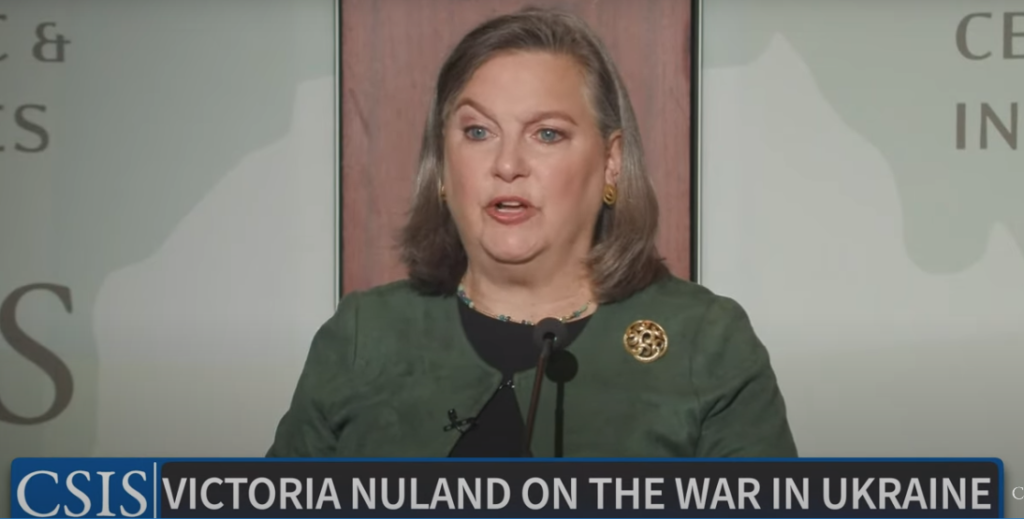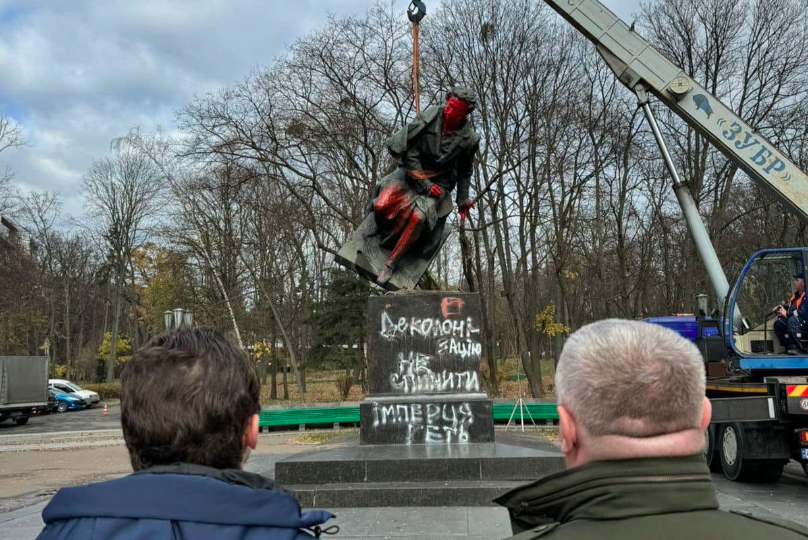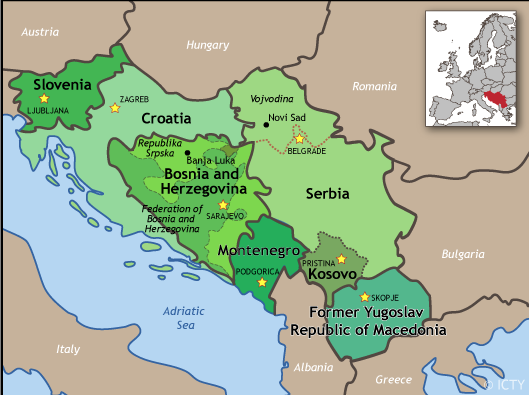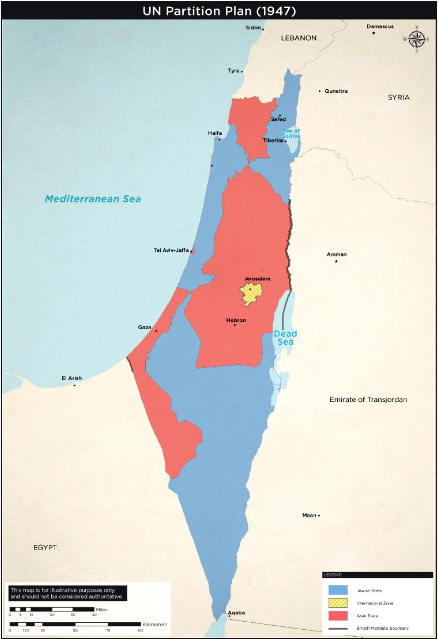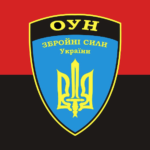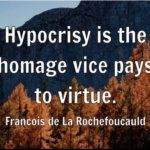There was a time when Poland was officially an ally of the communist Soviet Union. There was a time when Polish communists with the help of their Soviet comrades took over Poland and established themselves as rulers of the country. The Polish nation throughout its history had barely had Russians – irrespective of whether they were white or red – in high esteem. The Polish nation certainly despised the red variety of Russians even more intensely as the latter proved to be culturally rather not sophisticated. On top of this, Soviet Russians – or Bolsheviks – were busy suppressing some of the elements of Polish culture and they churned out primitive propaganda, one of the tenets of which was to convince the Polish nation that Russia, and especially Soviet Russia, had always been well disposed to the Polish people. True, there were individuals among the Polish nation who were ready to rise to the Soviet bait, and there were some who could be politically neutralized. Those who were prone to collaborate with the new masters thought that after the Second World War Poland had no choice and was doomed to stick to Moscow. Realpolitik. There was, however something, that was a thorn in the conscience of even ardent pro-Soviet Polish communists. This something was an event collectively known in Polish history as the Katyn Massacre. What was that?
When in 1939 Poland was attacked by Germany, by the German Third Reich, within two weeks of the beginning of the hostilities Poland’s eastern territories were invaded by the Soviet Union, which step by the way had been agreed with Germany in the run-up to the war. In autumn of 1939 the Polish territory ended up been occupied by Germany and Soviet Russia in a rough proportion of fifty-fifty. Both occupiers were hellbent on subduing the Polish nation and both saw it fit to first of all do away with the Polish elites: with teachers, doctors, priests, writers, engineers, military officers and the like. Both occupiers understood that a beheaded nation – the intellectuals were regarded as the nation’s head or mind – was much easier to control. They both – Germany and Russia – started to eliminate the intelligentsia in one way or another, with mass executions taking place on a regular basis.
After the war had come to its end, the German crimes were systematically exposed and condemned: Germany was a defeated nation, and there were many trials of German administrators or officers responsible for war crimes, not only in Poland but anywhere in Europe. Though guilty Germans were tried for their reprehensible deeds, the guilty Soviets were not. Why? That’s simple. After Germany had attacked the USSR, Soviet Russia became Poland’s (and the West’s) greatest ally and as such its image could not be dragged through the mire in the eyes of the Polish nation by exposing Russia’s exterminating operations executed against Poles. Yet, the Poles knew that Russians had been as cruel in their dealings with the Polish nation as Germans had, carrying out deportations, imprisonments and mass executions of not only the Polish intelligentsia but vast swathes of other social classes. The Katyn Forest (in the neighbourhood of Smolensk) – just one of the many places where such mass executions were performed – became an icon in the collective memory of the Polish nation. After 1945 every Pole in Poland could openly condemn the Germans for what they had done during the war, none could say anything against the Soviet Union. The nation was forced to live in a kind of schizophrenia: though both Germans and Soviets were the nation’s henchmen, the latter were to be viewed as friends and allies: as morally impeccable friends and allies. No mention of the Katyn Massacre found its way into history textbooks, no discussion about it was allowed even among historians. The nation’s mouth was gagged.
Sure enough people knew the truth and the truth spread by word of mouth, not to be suppressed by anybody. The more it was officially denounced, the greater currency among the nation it enjoyed.
When in 1989 communism in Poland collapsed and the country opened up to the so-called Western freedom of speech, the literature – popular and scholarly – about the Katyn Massacre became suddenly available to anybody who cared to familiarize himself with it, and, of course, this historical fact found its way straight into school textbooks. Numerous monuments were erected and commemorative plaques placed on the walls of important buildings to make a point, to show that the nation remembered, and to pay homage to those who had been murdered.
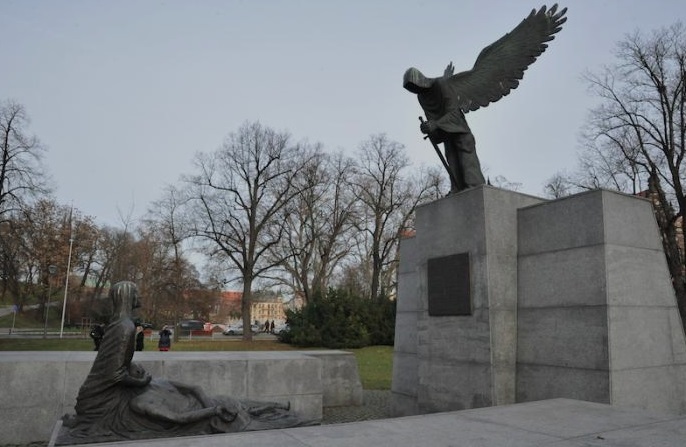
Monument to the Katyn Massacre, Wrocław /VRATS-wahff/, south-western Poland.
Why are we giving account of this story? Because much has changed and it looks as if little has changed. Now, more than thirty years after the collapse of the Soviet Union and seventy years after the end of the Second World War (more than seventy years since the Katyn Massacre) the same old story seems to repeat itself. Now Poland has found a new friend and ally in the east. Yes, this friend’s name is Ukraine. Ukraine used to be a part of the Soviet Union, so naturally Ukrainians were also a part of the Soviet repressive system, but never mind that. Ukrainians could easily be exonerated as acting under the Russian yoke. The point is, however, that Ukrainians themselves executed yet another Katyn Massacre against Poles (or, to be precise, a long series of such massacres) quite independently of their being subordinated to the Soviets. When in 1941 the Germans attacked the Soviet Union, they relatively soon took possession of Ukraine, and being involved in the bloody conflict further to the east, they did not have either time or resources to fully control Ukraine. Ukrainians saw a chance for themselves in the fact that Soviet Russia was being defeated. Ukrainians seeking to have their own state, allied themselves with the Germans and began to lay corner stones for their statehood, starting with ethnic cleansing. They targeted Poles and performed more or less regular bloodbaths in the territories that had ethnically mixed populations as located between Poland proper and Ukraine proper. The year 1943 was especially cruel: it is 11 July of that year, when in Huta Pieniacka /HOO-tah pyen-YAHTZ-kah/ in Volhynia the bloodiest massacre took place, and it is this particular date that was selected as the remembrance day for the whole series of events that are collectively known as the Volhynia Massacre.
The Polish nation was, thus, ethnically cleansed twice: by the Soviets (of which the majority were Russians, but also Ukrainians and Jews) and by the Ukrainians. The two iconic names and dates are Katyn (1940) and Volhynia (1943), with both being just symbols of series of extermination operations. In the period between 1945 and 1989, when socialist Poland was an ally of the Soviet Union (which means of Russia and Ukraine, the two largest Soviet republics) the Katyn Massacres were officially recognized as a German or Western anti-Soviet propaganda, while the Volhynia massacres were recognized as such. Why? Whence this difference in attitude? Simply, the image of the Soviet Union, the communist paradise for all humanity, could not be stained, while that of Ukrainian nationalists could. You see, it was not the Ukrainian communists who murdered the poles: it was Ukrainian nationalists. As a result, in post-war Poland films were made and books published about Ukrainian cruelty, though all this was significantly limited, not to be impolite towards Ukrainian communist comrades. The Volhynia events only received full coverage in the media, the popular culture (movies, books) and the universities after 1989. The Western-like freedom of speech, you know. Do I sound sarcastic? Yes, because I mean to.
The moment Ukraine found itself at war with Russia, Ukraine became Poland’s most important and friendly ally. As such, Ukraine could not be reminded of its past and so the Polish authorities duly began to suppress or limit or discourage anything that might keep the memory of Ukrainian atrocities alive in the Polish mind. Such policy began even years before the eruption of the conflict between Kiev and Moscow. Warsaw’s political instincts have always been anti-Russian, which meant that the Polish authorities – by the way: of all political petty persuasions – naturally looked to Kiev as allies against Moscow. The memory of the Volhynia Massacre became as inconvenient to the non-communist Polish authorities as the memory of the Katyn Massacre was inconvenient to the communist Polish authorities. While – as mentioned above – a number of monuments were erected to commemorate Katyn after the period of socialist Poland, few have been put up to commemorate Volhynia, and even these few that have been put up received no or little government blessing. Isn’t it Orwellian!
It is on the initiative of a small local community that a monument to the Volhynia Massacre has been erected and is going to be unveiled this July in south-eastern Poland. Take a very close look at it, and bear in mind that he Polish baby on a Ukrainian pitchfork that you will see in the centre of the monument is no artistic figurative vision. You see, the Soviets, or Russians if you will, were much more humane at Katyn: they would shoot their victims at the back of the head. Ukrainians would thrust pitchforks into the bodies of their victims, they would crucify them and burn them alive; they would not refrain from cutting open pregnant women’s wombs. Russians made an apology for the Katyn Massacre, Ukrainians made none for the Volhynia Massacre, and still the former are Poland’s mortal enemies while the latter are Poland’s dear friends.
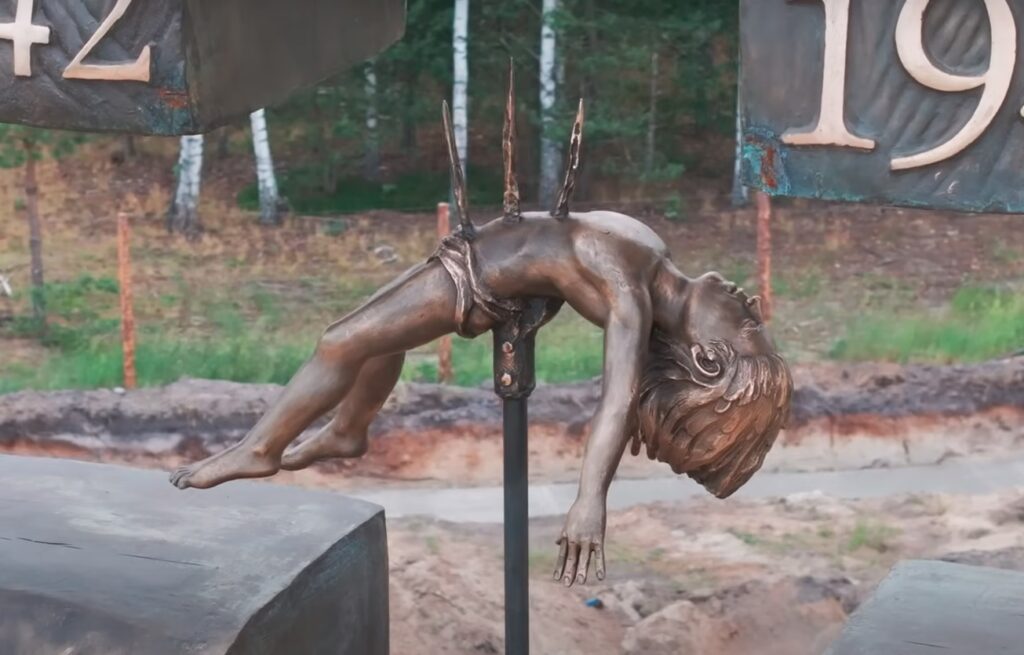
Fragment of the monument commemorating the Volhynia Massacre to be unveiled on 14 July 2024 in Domostaw, south-eastern Poland, on the local community’s initiative. Watch the two-minute video footage of the monument.



